Back in November 2010 when I started as women's editor, Jimmy Savile was still better known as a philanthropist than a predatory sex offender, and many of the campaigns that have marked the current wave of feminism, such as #EverydaySexism, did not exist. Inequality and injustice have long existed but as I move to a new role at the Guardian, here, in the spirit of openness and sisterhood, are some things I've learned over the past almost four years.
The gender lens is only a bit like a contact lens
This job has been life-changing. No longer can I enter a room, watch TV or simply take part in a conversation without thinking, "What about the women?" This is particularly marked whenever I do anything that I did pre-WE (women's editor), such as go to a football match or attend a television festival. I was hardly unaware these things were male-dominated; I just never saw by how much. Attending the Edinburgh television festival last week after a gap of four years, I couldn't help noticing the relative lack of women. Organisers later confirmed that men were twice as likely to appear on stage as women. I tried and failed to get another woman on a panel I chaired about Game of Thrones for god's sake. And no one even thinks of the media as male dominated – I mean it's not like banking or professional sport, is it? The organisers said the next generation would be more evenly split as a hefty 70% of the "ones to watch" (with just three to five years experience) were women. Similar, then, to all the other jobs where more than half of the new graduate recruits are female and far, far fewer of those at the top are. The way women are pictured, filmed, asked for an opinion: once you look at the statistics, you wonder how you never saw it so clearly before. The term "gender lens" is a bit patronising but it does feel like seeing something clearly, the big difference with contacts is that you can't take it out again.
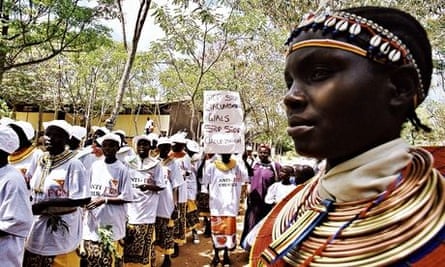
The internet has been brilliant for women
Four years ago, it wasn't clear that the web would inspire a new wave of feminism by giving women a new global voice. Instead of speaking up to a small number of friends and colleagues about everyday injustices or annoyances (see above), online campaigns and networks have allowed women to reach out to so many more people. Everywhere women started petitions, asked advice, started talking. In 2011, Laura Bates set up #EverydaySexism because she was tired of the daily instances of inequality – 70,000 others have since joined in. Campaigns as diverse as those against female genital mutiliation, Page 3 and the number of women killed each year in Karen Ingala Smith's Counting Dead Women have been part of this new wave as have a group of teenage girls who set up #TwitterYouthFeministArmy. Female turned to the web to talk and the Guardian set up its first women's blog to mark the conversation in 2011. Gang rape in India, abortion in Ireland, women-heavy poverty worldwide – the internet has made women's rights more of a global concern. Of course there are signs of a backlash but the genie won't go back in the bottle.
The internet has been bad for women
For almost every truly inspiring tale of feminist activism and support there has been one of online misogyny. Mary Beard, Caroline Criado-Perez, Stella Creasy MP, almost any woman on a TV panel – all berated not for what they say but how they look, often viciously. Online companies such as Twitter first said they could do nothing before increasing their support, albeit fractionally. We have seen the first prosecutions for online abuse. A report last year by Working to Halt Abuse Online, a volunteer organisation, found that women and girls make up 72.5% of the people who report being abused on the internet over the last 10 years. Of course, men get abused too, as research for the Sunday Times by thinktank Demos found last week. The difference is that the abusive tweets sent to prominent male figures don't usually talk about what they'd be like in bed or their penises. Not the ones I've read anyway.
The ubiquity of pornography, whatever consenting adults think of it, is in danger of corrupting a generation's view of what sex is all about. This is not just seen in porn itself but the "pornificiation" of so much of our culture from music videos to plastic surgery. Evidence of porn's ubiquity and impact was found in a report by the children's commissioner last year which linked it to unrealistic attitudes about body image and sex among young people, particularly boys. Porn has also been indicted by several judges for prompting attacks.
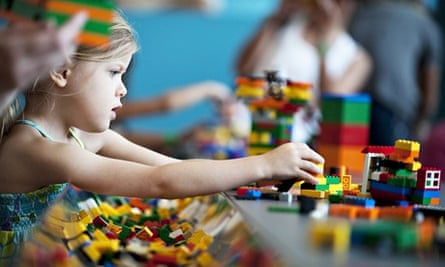
If the personal is political, so is parenting
When my son was five, and my daughter two years younger, he said he wanted to be prime minister when he grew up; the height of her ambition was to be a princess. It didn't take this job to tell me how wrong that was, but it has revealed how strong the pressure is to put them both in a gender straitjacket. Pinkstinks, the group that campaigns against gender stereotpying of women, highlighted how toy retailers were pushing girls down aisles filled with dolls and dressing up outfits while boys got to build things and jump about. Lego went from multi-coloured toys for every child to one in which girls had the pink sets with flowers to play with. Then, last month, complaints led the company to introduce three female scientists; it's a start or rather a return to the 1970s. Rachel Cusk may have written "childbirth and motherhood are the anvil upon which sexual inequality was forged" but using personal experience is still controversial. Being a mother doesn't make you a feminist, but it should be allowed to inform your opinion especially in an age when the personal and professional so often collide.
Boys matter
Feminism is seen as a zero-sum game for some reason, where rising power for women is a bad thing for men, and boys in particular face an uncertain, unfair future because of it. Not to put too fine a point on it, this is tosh. Over the past few years I've grown used to being asked, "What about the men?" and, "Why isn't there a men's editor?" My response has been to say that with much of the media controlled by men, one role that focuses on women doesn't seem too much to ask. But the wider point is that inequality that slots people into certain roles in life is bad for everyone. We need kids – boys as well as girls – to realise this.
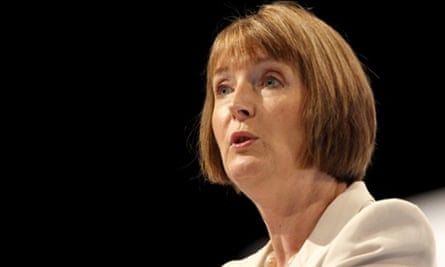
Language matters
Phrases that rely on an accepted idea of men and women are so prevalent that even Harriet Harman MP, a woman who has done so much for gender equality that her surname is often changed to "Harperson", told a fellow politician to "man up" before apologising. "Don't be such a girl" or "you're an old woman"; "feisty"; "knickers in a twist"; "he's got balls". There should be a list. And then we should ban them.
Power matters even more
For each step forward there seems to be a step back when it comes to equality. Whether that's in pay or boardroom representation or wealth inequality, it doesn't seem a huge step to suggest that the problem is that so many of our elite establishments are dominated by men. Just 22% – or one in five – MPs are women while David Cameron's cabinet includes five women. Just four women lead top 100 companies in the UK and there is only one woman editor of a national daily or Sunday newspaper.
We hear more about violence against women and girls but still nowhere near enough
In 2013 a study by the World Health Organisation found that 35% of women worldwide have experienced physical and/or sexual violence. In some countries this proportion rises to 70% . In November 2010 five men from Rotherham were jailed for sexual offences against underage girls. Last week, we heard about failings in protecting 1,400 girls and boys in the town. The scale and extent of suffering inflicted by the powerful – mainly men – on those weaker than them – mainly women and children – did not end in the 1970s. Holly Dustin, director of the End Violence against Women Coalition, says the scandal over historical abuse is "opening our eyes to endemic abuse" but she questioned whether anything has really changed, especially as local authority funding cuts have led to a crisis in domestic violence refuges and other women's services.
'Check your privilege' is not a term of abuse
Mainstream feminism has long been dominated by the straight white middle-classes and the last few years has seen increasing discussion of "intersectionality", which means in essence that the experience of all women – whether of colour, or class, or sexuality, not only intersect but matter. This is obviously a good thing and not something to be used to shut down the debate.
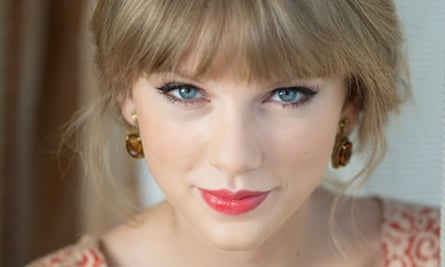
Feminism is cool again
A report by Netmums in 2012 posited the idea that women didn't want to be feminists as they liked make up too much. Or something. Yet since 2010 the number of grassroots feminist activist groups has tripled to over 150, according to UK Feminista's Kat Banyard, and over 1,000 school students have taken part in workshops on how they can tackle sexism. Besides, don't take my word for it. Jessica Valenti wrote recently that "feminism is no longer 'the f-word', it's the realm of cool kids". Beyoncé sampled Chimamanda Ngozi Adichie's TED talk on ***Flawless and performed in front of a giant FEMINIST sign at the VMAs, and singer Taylor Swift explained her own recent espousal of the cause: "I think a lot of girls have had a feminist awakening because they understand what the word means."
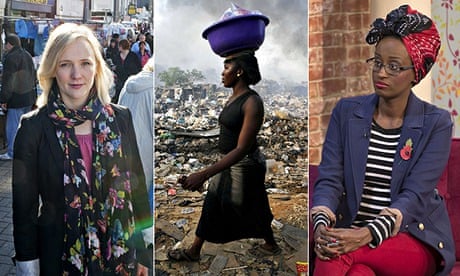


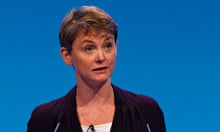
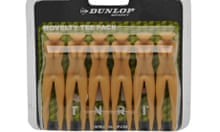
Comments (…)
Sign in or create your Guardian account to join the discussion